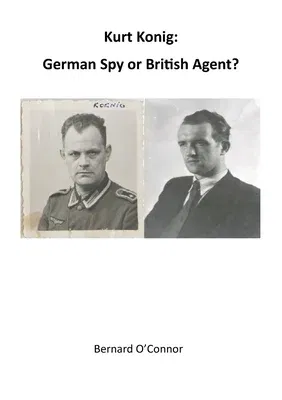In August 1942, a young man arrived at the British Consulate in San
Sebastian, northern Spain, claiming to be Kurt Konig, a German deserter.
After preliminary questioning, his onward travel to Britain was
arranged. Further questioning in London followed to determine whether he
was a German spy. He convinced most, but not all of his interrogators
and was sent for training by the Special Operations Executive (SOE), a
top-secret clandestine organisation. The SOE's plan was to provide him
with sabotage material and parachute him back into Germany to establish
a resistance network in Bremen. Not wanting the other 'students' of
different nationalities who were being trained as organisers, wireless
operators, couriers, weapons instructors, saboteurs and assassins to
know that Britain was training a German, he was provided with a new
identity as a Czech refugee. Konig received paramilitary, parachute and
clandestine warfare training and, provided with forged papers, a
Luftwaffe uniform, a revolver, ammunition, 'sweets and toys' (SOE's term
for sabotage equipment), various pills and plenty of money, he was sent
back to Germany in February 1943. Within a few months, he managed to
return to Britain and provide a detailed account of his activities.
Whilst some in the intelligence services queried his bona fides, he was
trained for a second mission. Infiltrated back into Germany in July 1943
to sabotage railways along the Rhine vallley, he completed his mission,
returned to Britain and volunteered for a third in January 1944. Using
Konig's personnel files and mission papers found in the National
Archives in Kew, Bernard O'Connor, author of many books on the SOE, has
researched Konig's story and provides a detailed documentary history of
his involvement in secret operations and insight into the day-to-day
workings of the intelligence service and conditions in wartime Germany.


